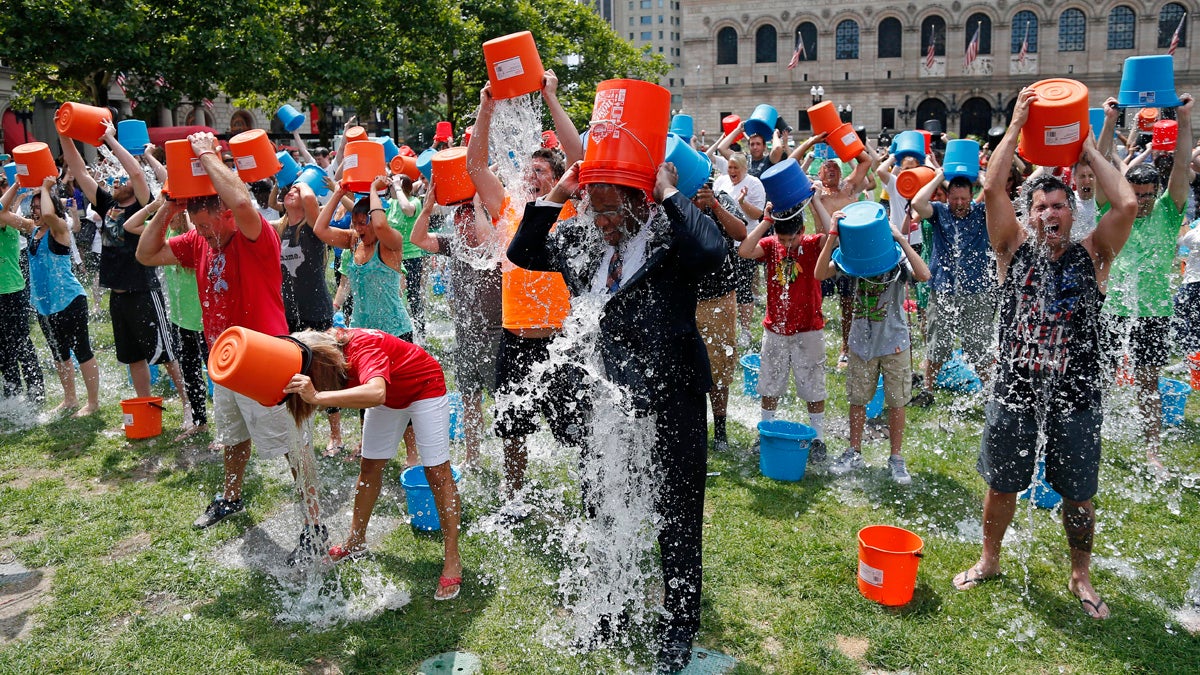Viral sensation ALS Ice Bucket Challenge elicits cheers and jeers
Listen
Some 200 people participate in the Ice Bucket Challenge at Boston's Copley Square to raise funds and awareness for ALS. The idea is easy: Record yourself dumping a bucket of ice water over your head, post it on social media, then challenge friends to do the same within 24 hours or pay up for charity. (AP Photo/Elise Amendola)
Bill Gates has done it. Oprah, Conan O’Brian, LeBron James and Mark Zuckerberg have done it. All of a sudden, people famous and not-so-famous people are dumping ice water on their heads, for a campaign turned viral sensation to raise money for ALS, also known as Lou Gehrig’s disease.
The campaign started on social media, and works like this: People challenge others to undergo a dump of ice water on their heads. You can accept, get wet, AND give $10 to the ALS association. And of course, share a video of your experience online. Or, you dodge the ice bucket and give $100.
The effort is getting both cheers and jeers, and there’s some serious ice bucket backlash brewing online right now. People proclaiming that they are “so over it” or asking others to “keep their heads in an ice bucket.”
Wharton marketing professor Deborah Small agrees that this campaign is particularly annoying, but admits that it has been a runaway success.
“You need to do something novel and unique and strange in order to capture people’s attention in this completely cluttered environment,” she explained.
But — she says what’s rubbing many people the wrong way is the endless videos of screeches and the giggles, when the cause is a fatal disease which slowly and cruelly robs people of every bodily function until their death.
“It kind of trivializes the cause, and it makes it a joke and a gimmick,” she said.
Even if you don’t like the way the Ice Bucket Challenge mixes narcissism with altruism, there is this: The ALS Association has received more than $15 million in donations since July 29 — compared with $1.8 million during the same time period last year.
So, Small’s Wharton colleague Leonard Lodish suggests putting your complaints on ice.
“Nobody has been hurt, nobody has done anything unethical immoral or wrong, and there has been a lot of good that’s happened,” Lodish said.
Lodish, who has run a personal ALS fundraising challenge with his wife since the late 1990s, has lost a cousin to the disease.
Even if people are more excited about posting videos of themselves on social media than actually doing charity, even if the meaning of the campaign is occasionally lost, he said, the downside is dwarfed by its success.
Small predicts the campaign will fade out and be over within a week.
WHYY is your source for fact-based, in-depth journalism and information. As a nonprofit organization, we rely on financial support from readers like you. Please give today.


